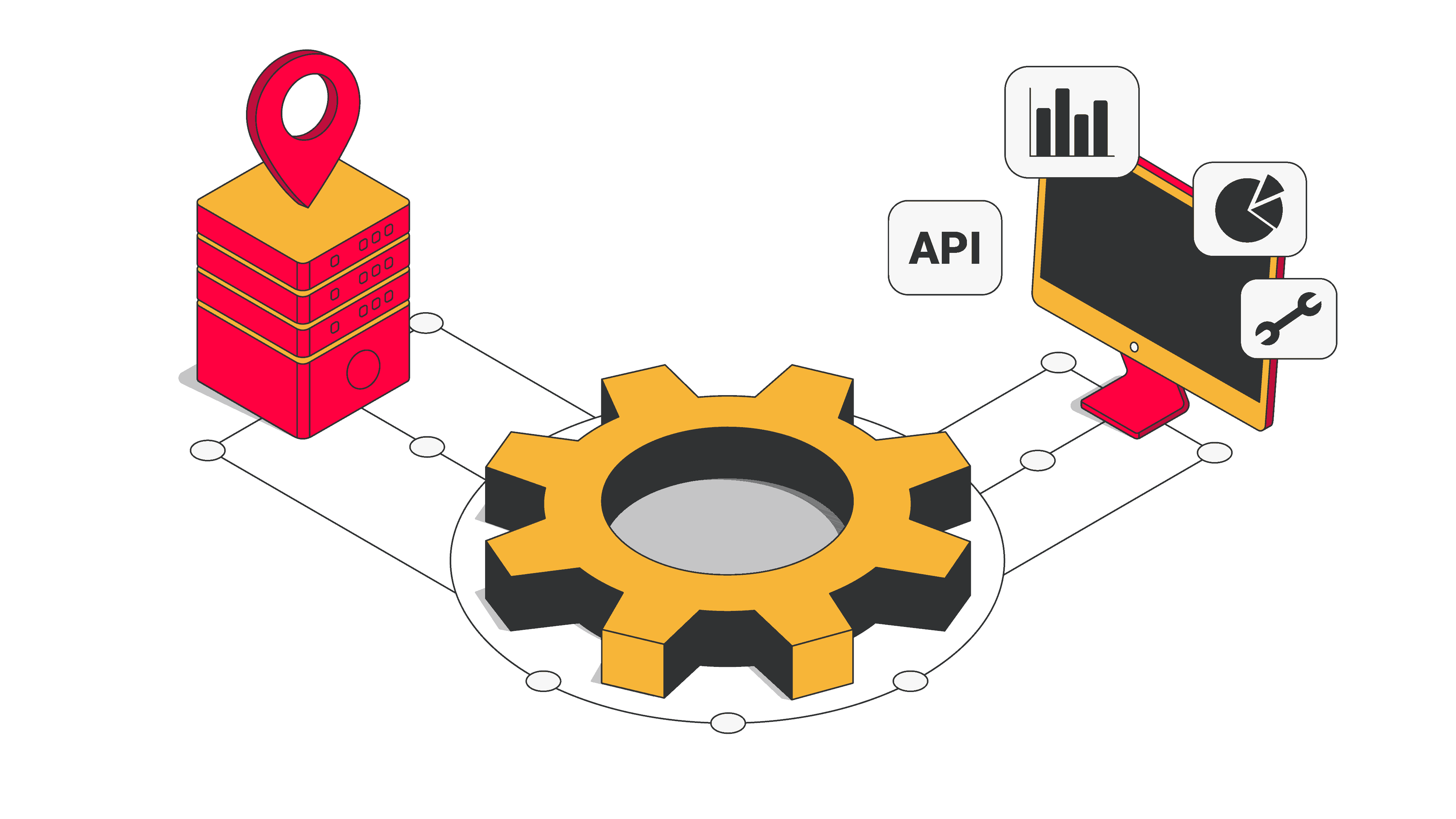What Is a Proxy Service and Why Do You Need One?
Learn all about proxy services in this in-depth guide.

What Is a Proxy Service
Proxy services are companies that provide uninterrupted access to proxy servers – computers which send your connection requests via a different IP address. These services benefit both home users and businesses: they help access geo-restricted content, bypass IP bans, run a large number of automated tasks, and achieve other goals.
Proxy Service vs Proxy Server
The waters can get murky while trying to understand the differences between a proxy service and a proxy server. It doesn’t help that some websites tend to use these terms interchangeably for Google ranking purposes. Let’s take a closer look at them.
A proxy server is a machine connected to the internet that reroutes your connection requests. The key feature of a proxy server is to provide you with a different IP address and location by sending requests on your behalf.
In contrast, a proxy service ensures uninterrupted access to proxy servers for commercial or individual use. They cover every step of the journey: from sourcing IP addresses, setting up and maintaining proxy server infrastructure to providing proxy management tools and technical support.
Benefits of a Proxy Service
Proxy services aren’t free, so it’s natural to feel reluctant about leaving your money to them. You might lean toward using a free proxy list, whipping up a proxy server from cloud instances, maybe even setting up an in-house data center if you’re working at an enterprise. These are all viable options, but here are some ways how proxy services give you your money’s worth:
Large IP network. Proxy service providers control thousands to millions of IP addresses. Their economy of scale creates a diversity that would be very hard to replicate with alternatives. A typical provider has no issues offering proxies from hundreds of cities, ASNs, and subnets. This makes it easy to target different countries and harder to get blocked.
Maintained proxy infrastructure. Proxy services have a direct economic incentive to keep the servers robust and compatible with your use case (be it web scraping, automation, or what have you). This involves ensuring high uptime, filtering out blacklisted IPs, and providing addresses that can access particular websites like Google or social media.
Better variety. Compared to online lists or data centers, proxy services offer more IP types for different tasks. For example, you can get IPs that are associated with residential internet services or mobile carriers. Both are becoming an increasing necessity when working with popular websites, but they’re impractical to run on your own.
Proxy management tools. Proxy services provide convenient tools for filtering, rotating, and otherwise working with proxy servers. For example, they have online dashboards for setting up proxies and tracking use. Instead of manipulating IP lists, you can use a backconnect gateway address that automatically fetches proxies from a large pool of IPs. Some providers even offer APIs that outfit the proxies with web scraping and data parsing capabilities.
Customer support. Since proxy servers are a high-maintenance resource, they need constant attention. Most proxy services include 24/7 support via live chat, dedicated account manager, or email.
Ethical proxy use cases. Major proxy services ensure that their resources are sourced and used for legitimate use cases. This keeps the IPs clean and avoids potential legal or reputational issues.
Tips on Choosing a Proxy Service
When choosing a service, you should know what you will use the proxies for. Maybe you’re scraping social media data and need a residential proxy network with access to a large proxy pool? Or you simply want to access geo-restricted content, and datacenter proxies will do the job just fine while also saving you tons of money.
Another important (sometimes even the most crucial) criterion is the size of the IP pool. It refers to the number of IP addresses the service has. In the case of datacenter proxies, a small pool would mean more risk of getting the IPs banned in bulk. Peer-to-peer services like residential proxies are tied to devices of real people meaning the number of addresses can change daily.
There are but a few of the things you should consider. You can find more suggestions in our article on selecting a reliable proxy service.
The Bottom Line
A proxy service provides uninterrupted access to well-maintained proxy servers, complete with management tools and technical assistance. It can benefit your business in many ways and is often the best option for running data collection, automation, and anonymity-related projects.